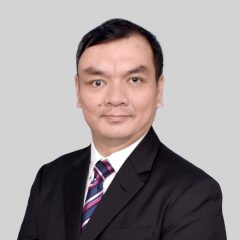Much has been made of Myanmar’s new constitution in the international media, but what impact does the law have on the private sector? Our team in Yangon summaries the key features of the law – from a business perspective.
|
PARLIAMENT GETS DOWN TO BUSINESS
After the promulgation of the Constitution in 2008, the elections in 2010 and the adoption of the new constitution in January this year, the new Union Government was formed and sworn in on 30 March 2011. The legislative branch of government is composed of three houses – the Pyithu Hluttaw (Lower House), Amyotha Hluttaw
On 22 August 2011, the second regular session of the first Pyithu Hluttaw and the second regular session of the first Amyotha Hluttaw were held, and are still underway. The legislature is presently debating Bills to be submitted to the President for promulgation.
At the second regular sessions now being held, there are Bills approved by members of the Union Parliament to be promulgated as new Pyidaungsu Hluttaw laws.
In a break with the past, legislative proceedings are open to members of the local and international media.
|
The new Constitution of 2008 which is the supreme and basic law of the land became operative on 31 January 2011; on the day of the first session of the Pyidaungsu Hluttaw (Union Parliament). As the supreme law, the Constitution cannot be amended without the approval of 75% of the Pyidaungsu Hluttaw and in certain cases a national referendum, thereby granting all constitutional provisions special status and greater certainty as to the regulatory environment.
Myanmar is now known as the Republic of the Union of Myanmar, comprising seven Regions and seven States which are of equal status as well as Union territories and Self-Administered Areas.
Adoption of the market economy. In a significant shift away from the legacy of a command economy, the adoption of a market-based economic system is given constitutional protection.
There is separation of power. Legislative power, executive power and judicial power are separated, and exert reciprocal control, checks and balances among themselves. Legislative power is shared among the Pyidaungsu Hluttaw, Region and State Hluttaws. The head of the executive branch is the President of the Union. The Supreme Court of the Union is the highest court as well as the final court of appeal.
Protection of citizens and economic activity: The Constitution guarantees the right to equality, liberty and justice for every citizen. Moreover, there are certain provisions which have an impact on the business environment. These include: the protection of economic enterprises from nationalization; the prevention of acts that injure public interests through monopolization or manipulation of prices by an individual or group with a view to endangering fair competition in economic activities; the rights of citizens, as well as the state to take part in economic activities for development of the economy; protection from the enactment of laws which are of retrospective effect; the protection and conservation of the natural environment; the recognition of the necessity to improve living standards and develop investments; the recognition of the rights of workers by the enactment of new laws; and the protection against demonetization of the currency legally in circulation.
Fundamental rights and duties of the citizens, include among others: Enjoyment of equal rights by any person before the law and equal legal protection; Non-discrimination of any citizen regardless of race, birth, religion, official position, status, culture, sex and wealth; Enjoyment of equal opportunity of citizens in respect of their public employment, occupation, trade, business, technical know-how and vocation and the exploration of art, science and technology; Entitlement to the same rights and salaries by women as those received by men in respect of similar work; Right to do business freely by every citizen; Guaranteed right to ownership, use of property and the right to private inventions and patents in the conduct of business if these are not contrary to the Constitution and existing laws.
All existing laws continue to be operative so long as they are not contrary to the Constitution or unless they are repealed or amended by the Pyidaungsu Hluttaw.
With respect to any economic activities prescribed to be carried out only by the Union Government, the Union Government may, if it is in the interest of the Union, permit the Region government or the State government to form a joint venture with the Union Government and also, permit a co-operative organization, economic organization and an individual person to form a joint venture with the Union Government or to operate under additional terms and conditions.
Notes and disclaimer: DFDL Mekong operates in Myanmar by way of an association with Myanmar Thanlwin Legal Service Ltd. Nothing in this memo should be construed or relied upon as legal advice. While effort is taken to ensure the accuracy of the contents hereof, DFDL Mekong and its associate shall not be liable for any loss or damage caused by or connected to reliance on any information herein. Readers are urged to contact DFDL Mekong or its associate office in order to obtain appropriate legal advice, before relying on the contents hereof.
|

